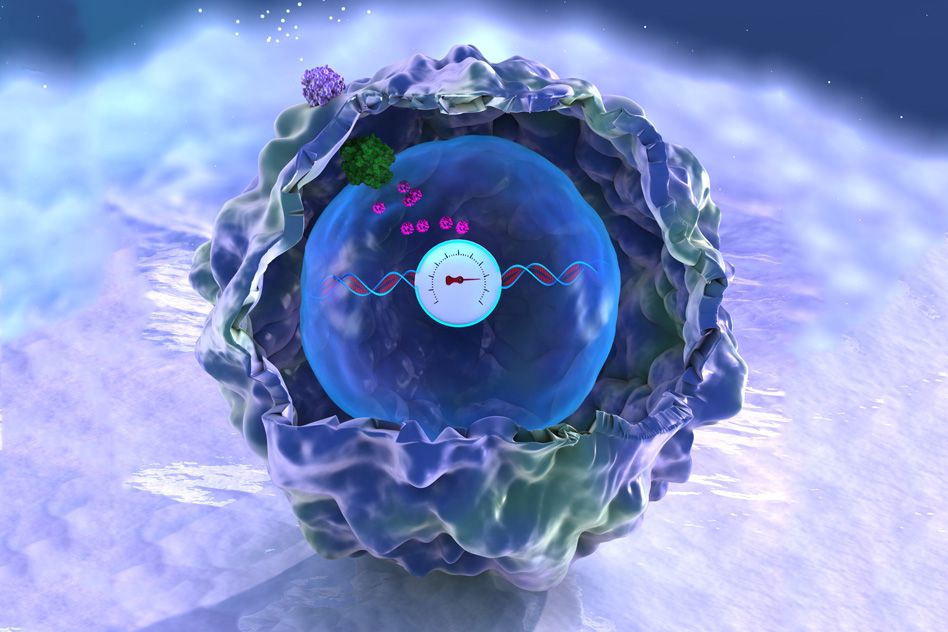Luv this.
MIT biological engineers have devised a way to record complex histories in the DNA of human cells, allowing them to retrieve “memories” of past events, such as inflammation, by sequencing the DNA.
This analog memory storage system—the first that can record the duration and/or intensity of events in human cells—could also help scientists study how cells differentiate into various tissues during embryonic development, how cells experience environmental conditions, and how they undergo genetic changes that lead to disease.
“To enable a deeper understanding of biology, we engineered human cells that are able to report on their own history based on genetically encoded recorders,” says Timothy Lu, an associate professor of electrical engineering and computer science, and of biological engineering. This technology should offer insights into how gene regulation and other events within cells contribute to disease and development, he adds.
